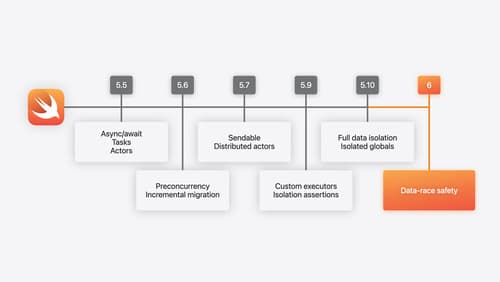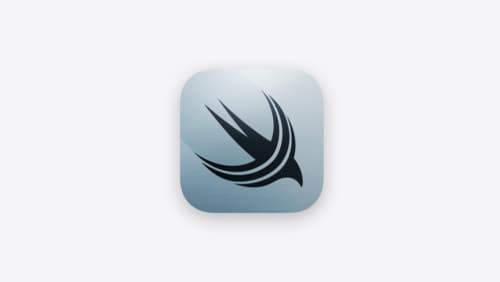Foundation
Asked on 2024-08-13
3 searches
The "Foundation" framework in Swift has undergone significant changes, as discussed in the session titled "What’s new in Swift" at WWDC 2024. The Foundation framework has been rewritten from Legacy C and Objective-C into modern, portable Swift. This transition allows for a more consistent, higher quality, and better-performing framework across all platforms. The new Swift Foundation is open source, inviting community contributions and an open evolution process for adding new APIs. For example, the Predicate API is now available on all platforms in Swift 6 via Swift Foundation, and it has gained support for regular expressions.
For more details, you can refer to the session What’s new in Swift (11:42).

What’s new in Swift
Join us for an update on Swift. We’ll briefly go through a history of Swift over the past decade, and show you how the community has grown through workgroups, expanded the package ecosystem, and increased platform support. We’ll introduce you to a new language mode that achieves data-race safety by default, and a language subset that lets you run Swift on highly constrained systems. We’ll also explore some language updates including noncopyable types, typed throws, and improved C++ interoperability.

What’s new in SwiftData
SwiftData makes it easy to add persistence to your app with its expressive, declarative API. Learn about refinements to SwiftData, including compound uniqueness constraints, faster queries with #Index, queries in Xcode previews, and rich predicate expressions. Join us to explore how you can use all of these features to express richer models and improve performance in your app. To discover how to build a custom data store or use the history API in SwiftData, watch “Create a custom data store with SwiftData” and “Track model changes with SwiftData history”.

Platforms State of the Union
Discover the newest advancements on Apple platforms.
